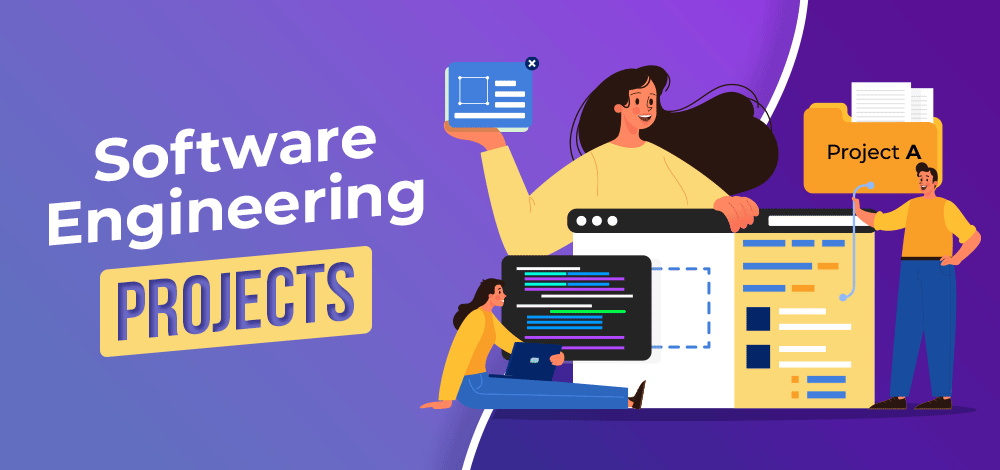If you’re new to software engineering, the sheer amount of information can feel overwhelming. But don’t worry—every expert developer started from scratch. This guide will walk you through exactly how to begin, from learning your first programming language to landing your first job.

Step 1: Understand What Software Engineering Is
Software engineering isn’t just “coding”—it’s about:
✅ Solving problems with technology
✅ Designing scalable systems
✅ Writing maintainable code
✅ Collaborating in teams
Fields you can specialize in:
- Cybersecurity
- Web Development (Frontend/Backend)
- Mobile Development (iOS/Android)
- DevOps & Cloud Engineering
- Data Science & AI
Step 2: Learn the Fundamentals
A. Pick Your First Programming Language

| Language | Best For | Difficulty |
|---|---|---|
| Python | Beginners, AI, Data Science | Easy |
| JavaScript | Web Development | Medium |
| Java | Enterprise Apps, Android | Medium |
| C# | Game Dev (Unity), Windows Apps | Medium |
Recommendation: Start with Python or JavaScript—they have huge communities and plenty of beginner resources.
B. Learn Core Computer Science Concepts
Even if you don’t have a degree, understand:
- Algorithms & Data Structures (Big O Notation, Sorting, Searching)
- Databases (SQL vs. NoSQL)
- Networking Basics (HTTP, APIs)
- Version Control (Git & GitHub)
Free Resources:
- Harvard’s CS50 (Best intro to CS)
- freeCodeCamp’s JavaScript Algorithms
Step 3: Build Projects (Portfolio Matters!)
You can’t get hired just by watching tutorials—you need real projects.

Beginner Project Ideas
- To-Do List App (Learn CRUD operations)
- Weather App (Practice APIs)
- Personal Portfolio Website (HTML/CSS/JS)
- Simple Game (Tic-Tac-Toe, Snake)
Advanced Projects:
- E-commerce clone (React + Node.js)
- Chatbot (Python + NLP)
Pro Tip: Host projects on GitHub and write a README.md explaining your work.
Step 4: Get Real-World Experience

A. Contribute to Open Source
- Start with beginner-friendly repos on Good First Issues
- Fix bugs, improve docs, or add small features
B. Internships & Freelancing
- Apply for internships on LinkedIn, AngelList
- Take small gigs on Upwork, Fiverr
C. Networking
- Join Discord, Reddit (r/learnprogramming), local meetups
- Follow devs on Twitter/X, LinkedIn
Step 5: Prepare for Jobs

A. Polish Your Resume
- List projects, skills, and GitHub
- Use action verbs: “Built,” “Optimized,” “Automated”
B. Practice Coding Interviews
- LeetCode (Easy/Medium questions)
- System Design (For mid/senior roles)
C. Apply Strategically
- Start with startups & small companies (easier to get into)
- Use cold emails (Find hiring managers on LinkedIn)
Step 6: Keep Learning & Growing

The tech field changes fast—stay updated with:
- Newsletters (Dev.to, Hacker News)
- Podcasts (Syntax.fm, Lex Fridman)
- Certifications (AWS, Google Cloud)
Final Advice
🚀 Consistency > Speed – Coding 1 hour daily beats binge-learning.
🚀 Build in public – Share progress on Twitter/LinkedIn.
🚀 Don’t compare yourself – Everyone’s journey is different.
What’s your biggest challenge as a beginner? Let me know in the comments—I’ll help!
Bonus: Free Learning Roadmap
📌 freeCodeCamp Full Curriculum
📌 The Odin Project (Web Dev)
📌 Google’s Python Course
Want a personalized plan? Tell me your goals, and I’ll suggest resources! 🚀